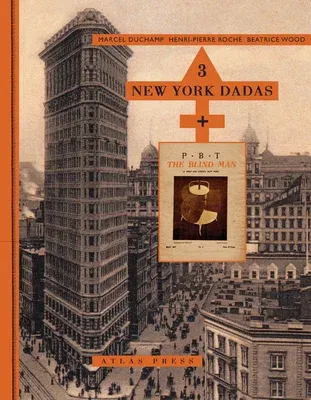Three New York Dadas and The Blind Man relates the story of the
triangular relationship between Marcel Duchamp, Henri-Pierre Roché and
Beatrice Wood, told in the words of two of its protagonists; and also
reprints in facsimile the Dadaist magazine they produced together in New
York in 1917: The Blind Man. The principal text is the first English
translation of Roché's novel Victor, an account of his friendship with
Duchamp (nicknamed Victor by his close friends in those days). Although
unfinished, Roché's text offers a unique account of New York Dada, all
of whose principal characters and events make an appearance: Francis
Picabia, Arthur Cravan, the Arensbergs and their soirées, the Blind
Man's Ball and the scandal of Duchamp's Fountain at the Independents
exhibition, a pivotal moment in modern art. The novel offers interesting
insights into the sexual politics of the period, when a woman could be
arrested or blackmailed for spending the night with a man to whom she
was not married. Roché, a lifelong friend of Duchamp, appears to have
been something of a devotee of triangular relationships, and went on to
write a more famous novel on the topic (also autobiographical), Jules
et Jim--later made into a film by François Truffaut. Beatrice Wood's
account of these events is taken from her memoirs; she went on to become
a celebrated ceramicist, dying in 1998 aged 105. The introduction and
commentary is by Dawn Ades, the well-known scholar of Dada and
Surrealism.

